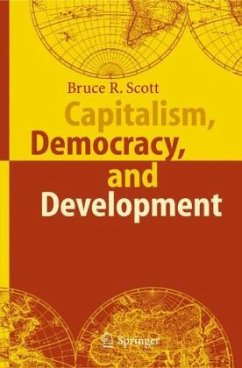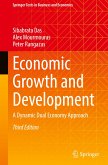This book looks at the emergence of capitalism and democracy as systems of economic and political governance and considers how these two systems may be both mutually supportive and antagonistic. In mapping out the balance between capitalism and democracy, the book includes chapters on the theory and history of these systems that challenge the assumption that their spread will bring about a convergence of incomes either among countries or within them. Inequalities of income and power emerge as a major societal issue alongside poverty, and the book develops alternative societal models based upon the degree of inequality in wealth and power. Since 1980, Anglo-American style capitalism has been a cause of increased inequality in a number of rich countries and threatens to duplicate itself in many developing countries. The book argues that the increasing integration of markets (globalization) will not solve these problems of inequality, they require political solutions. The EU attempts one such solution, but it is not clear whether it will remain competitively viable. Meanwhile, increasing inequality is causing two serious problems for democratic societies: a move to the left and/or political instability in many developing countries and a rising tide of immigrants seeking to move from poor countries to rich.
Professor Scott presents the development of capitalism as a political process, the result of conflicts among social actors, with capitalists and government officials as the main actors. While focused on the United States, this book has the great merit of showing that American capitalism was a contingent and not inevitable outcome, and that different balances of forces and different circumstances created distinct varieties of capitalism in other countries and historical moments. This book's insights deserve careful consideration from historians, social scientists, and all those who address economic issues in the political realm.
Richard Lachmann,
Professor of Sociology
College of Arts and Sciences
University at Albany
Richard Lachmann,
Professor of Sociology
College of Arts and Sciences
University at Albany
"Professor Scott presents the development of capitalism as a political process, the result of conflicts among social actors, with capitalists and government officials as the main actors. While focused on the United States, this book has the great merit of showing that American capitalism was a contingent and not inevitable outcome, and that different balances of forces and different circumstances created distinct varieties of capitalism in other countries and historical moments. This book's insights deserve careful consideration from historians, social scientists, and all those who address economic issues in the political realm." -- Richard Lachmann,Professor of Sociology, College of Arts and Sciences, University at Albany








